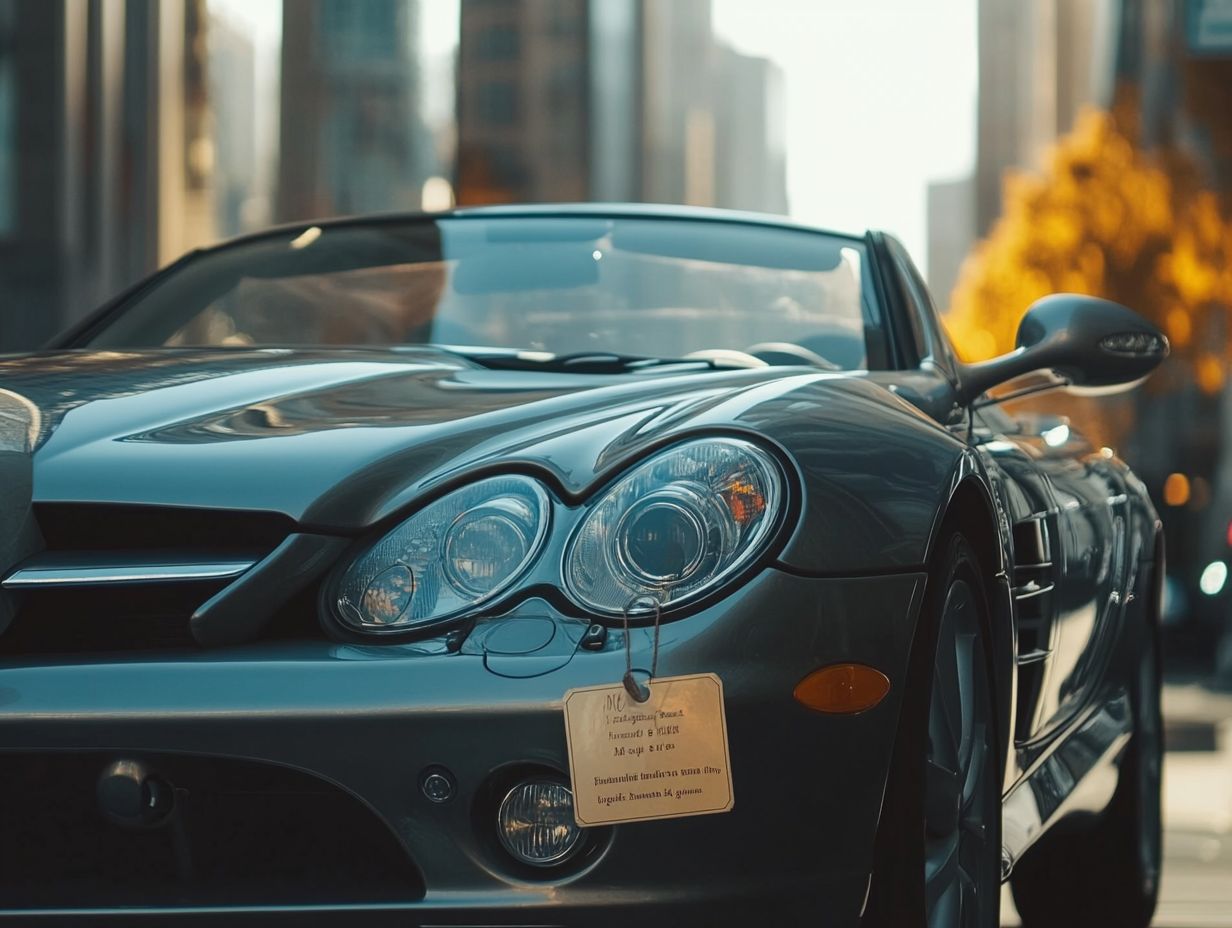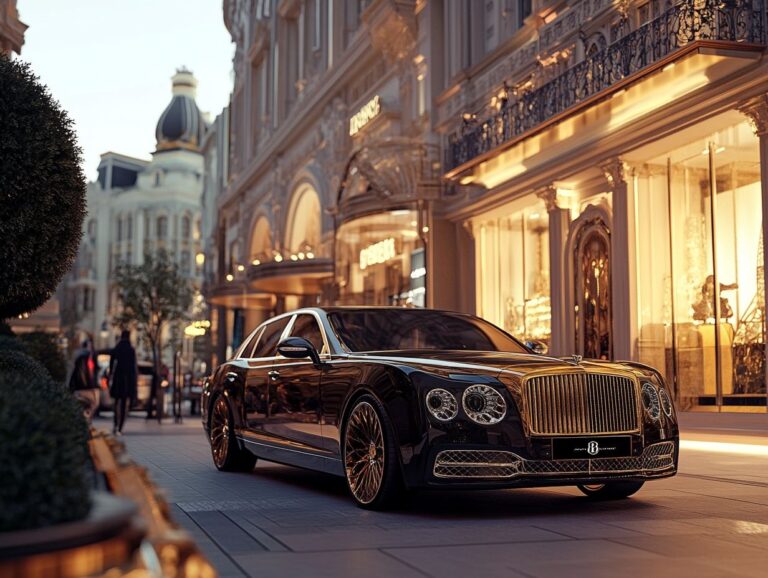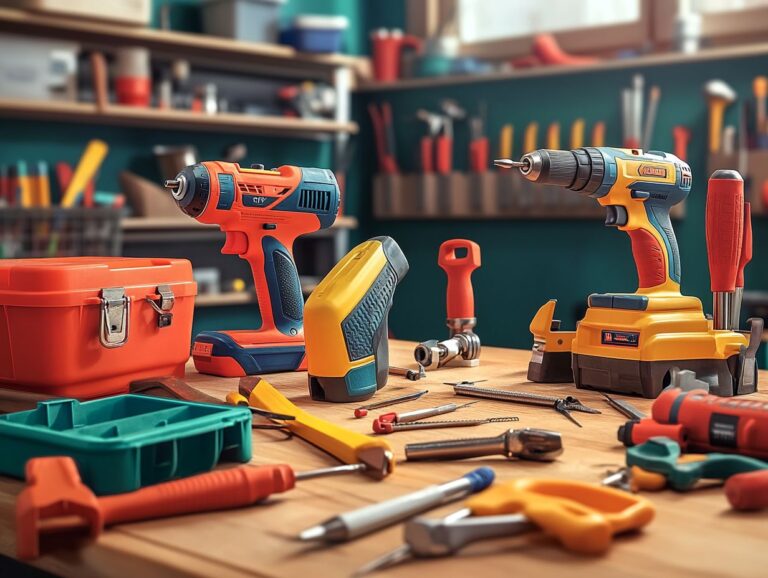The True Value of Used Luxury Cars in Today’s Market
Navigating the market for used luxury cars can be both exciting and challenging, especially when trying to determine their real value.
Several key factors influence the worth of these high-end vehicles, including brand reputation, model desirability, age, mileage, and overall condition.
This article examines how to assess used luxury cars, offers insights on evaluating market prices using automotive valuation tools, and provides practical tips for buying and selling.
Whether you’re an experienced enthusiast or a first-time buyer, get ready to understand the true value and ownership experience of used luxury cars.
Factors Affecting the Value of Used Luxury Cars

Understanding what affects the value of used luxury cars is important for buyers and sellers in today’s automotive market. Brand reputation, depreciation, and buyer demand significantly influence market value, alongside factors such as economic conditions and geographic location.
Also, market trends and regional differences can greatly impact resale prices. Considering these factors helps consumers make informed decisions when buying or selling, ensuring they maximize their investment in used luxury cars.
Brand and Model
The brand and model of a used luxury car greatly affect its market value and resale potential because of consumer perceptions, brand reputation, and associated luxury vehicle attributes. Well-known luxury brands typically have higher resale prices due to their track record and reliability.
For example, cars from brands like Ferrari or Porsche often increase in resale value over time. This is due to their high-quality craftsmanship and a strong community of enthusiasts and collectors who increase demand.
Recent sales data show that certain limited-edition vehicles can sell for two to three times their original price, underlining the impact of exclusivity and desirability.
The reputation of luxury brands is crucial. Automakers known for advanced technology and safety features appeal to buyers willing to pay more, thus significantly enhancing their resale value.
These factors demonstrate how consumer preferences shape the luxury car market, influencing the pricing landscape.
Age, Mileage, and Condition

Age and mileage are key in determining the value of used luxury cars, as they affect how much a vehicle depreciates and its overall condition. Generally, older luxury cars with higher mileage have lower resale prices.
In the luxury car market, depreciation rates can often exceed 15% to 25% in the first five years. For instance, a luxury car initially worth $100,000 may lose nearly half its value in five years, mainly due to age and use. As mileage increases, demand usually decreases, which can further reduce a car’s market value.
It’s important to note that while luxury cars often come with higher ownership costs, including maintenance, they can retain value better than regular vehicles if kept in excellent condition. Drivers should consider these factors when buying or selling to maximize returns.
Condition and Maintenance History
The condition and maintenance history of a used luxury car are crucial for determining its market value because buyers often prefer vehicles with thorough history reports. Factors like wear and tear, documented maintenance costs, and detailed inspections can greatly improve resale potential.
When evaluating a vehicle, buyers focus on any signs of neglect that might suggest hidden problems. A detailed maintenance record not only reassures buyers about the car’s reliability but also helps them estimate future maintenance expenses.
Regular inspections, used car inspections, and updates on repairs offer transparency, making buyers more confident in their purchase. Ultimately, a well-documented vehicle history can change how buyers view the vehicle and affect their willingness to pay, directly influencing its resale value and resale profitability.
Market Demand and Availability

Market demand and availability significantly impact the resale price of used luxury cars, as changes in buyer interest and supply chain dynamics affect the market supply. When demand rises for specific luxury car models, auction prices and resale values can increase sharply.
This demand increase often stems from trends in buyer preferences, like the growing interest in electric luxury vehicles or unique, limited-edition models. As more buyers focus on these in-demand segments, the availability may decrease, causing competitive bidding at auctions and driving prices up.
On the other hand, if interest drops for specific brands or features, these luxury cars may remain on the market longer, reducing resale prices.
Paying attention to these trends benefits both buyers and sellers by helping sellers maximize their return on investment in the resale market.
Determining the Real Worth of Used Luxury Cars
To determine the real value of used luxury cars, it’s important to analyze various car valuation tools, market research reports, and pricing guides.
By considering factors such as car depreciation rates, current buyer demand, and economic indicators, sellers and buyers can reach a fair and informed valuation.
Researching Market Prices

Researching market prices for used luxury cars is important for buyers and sellers to make informed choices, including consulting online marketplaces and dealership pricing. This process includes analyzing market trends, using consumer reports, and comparing auction sale prices and private sale listings.
Understanding what affects the luxury car market, including market segmentation and economic factors, can help individuals in their buying or selling journey. A useful approach is conducting a detailed market analysis of sales data for similar models over a specific time.
Consumer reports offer key information on vehicle performance, reliability, and customer satisfaction, which helps identify good options.
When pricing, knowing local demand and comparing prices from dealerships and online sources can provide insights into fair market value.
Considering Depreciation and Resale Value
Considering depreciation and resale value is crucial when evaluating used luxury cars because these factors significantly affect long-term ownership costs and investment potential.
When buyers assess a luxury vehicle, understanding how depreciation impacts resale value offers important insight into the financial commitment involved. Luxury cars usually depreciate faster than regular vehicles, affecting their value depreciation and resale potential with a large drop in value in the first few years. This affects both sellers, planning to sell their cars in the future, and the overall cost of ownership.
Understanding these dynamics helps buyers make informed decisions, consider financing options, and plan for future costs. Sellers can also better set their sale prices in a changing market. Market forecasts indicate that some luxury brands may have different depreciation rates, assisting buyers and sellers in navigating their options more effectively.
Tips for Buying and Selling Used Luxury Cars
Buying and selling used luxury cars involves knowing negotiation tactics, financing options, and warranty coverage to ensure a satisfactory deal for both buyer and seller.
Price Negotiation and Competitive Analysis
Negotiating prices for buying or selling used luxury cars is important for securing better deals, whether by spotting dealer markups, assessing trade-in offers, or handling private sales.
To negotiate effectively, you need to understand common dealer tactics, particularly the hidden markups often added to prices. Researching the vehicle’s market value can help identify these extra charges and give you an advantage.
For trade-ins, it’s important to accurately determine the car’s trade-in value by considering its condition, mileage, and local demand.
In private sales, understanding the seller’s motivations can provide negotiation opportunities, allowing buyers to reach a beneficial deal for both parties.
Checking for Authenticity and Potential Issues
Checking the authenticity and potential issues of used luxury cars is important to protect buyers from unexpected problems. This often includes reviewing vehicle history reports and getting expert appraisals.
This process typically starts with a close look at documents such as maintenance records, ownership history, and previous accidents to uncover any hidden issues.
Buyers should also focus on the unique features, technology features, and specifications of different luxury car brands, as each may have specific signs of wear or modifications indicating deeper problems.
Consulting with a certified appraiser or mechanics who specialize in luxury vehicles can provide important insights, ensuring you make informed decisions when dealing with the luxury car market, including understanding trade-in value and ownership costs.





